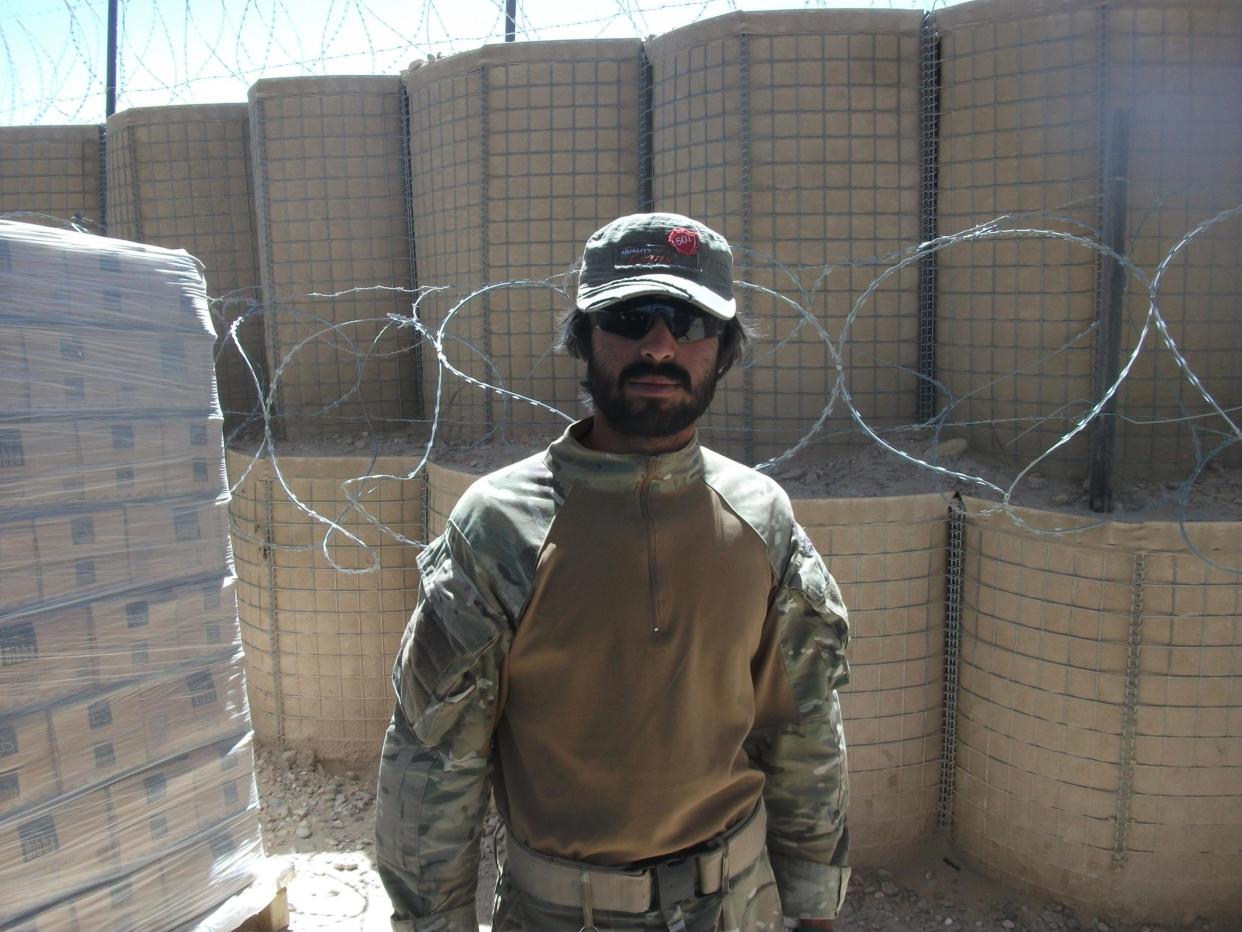UK government 'dismally failed' Afghan interpreters who worked for British Army, warn MPs

Afghan interpreters who risked their lives while serving for the British Army have been “dismally failed” by the UK government, MPs have warned, as it emerges a scheme designed to offer them protection has not brought a single one to safety in Britain.
A report by the Defence Committee said the “Intimidation scheme” – designed to help local interpreters at risk of reprisals from the Taliban – had not offered any interpreters refuge in Britain, despite reports of threats and intimidation.
During the UK’s involvement in Afghanistan, British forces were supported by some 7,000 locally employed civilians (LECs), about half of whom fulfilled vital roles as interpreters, who were often exposed to “extremely dangerous” situations.
But despite the government stating the UK owes these individuals “debt and gratitude” for their work in the army, it appears to go to considerable lengths to prevent interpreters and other locally employed civilians from being relocated in Britain, MPs said.
A separate programme, known as the “Redundancy Scheme”, has provided financial support within Afghanistan for former employees who lost their jobs and has enabled some 1,150 LECs and dependents to settle in the UK – but it was available only to staff who were in post on 19 December 2017.
The report states that the government’s scheme to safeguard Afghan interpreters threatened with reprisals for working with the British Army had “dismally failed to give any meaningful assurance of protection” from the Taliban.
“Given our government’s own stark assessment of the perilous Afghan security situation, the idea that no interpreters or other former LECs have faced threats and intimidation warranting their relocation to the UK is totally implausible,” it continued.
Dr Julian Lewis MP, chairman of the Defence Committee, warned that such treatment could make it more difficult to employ local interpreters in future military campaigns.
“How we treat our former interpreters and local employees, many of whom served with great bravery, will send a message to the people we would want to employ in future military campaigns – about whether we can be trusted to protect them from revenge and reprisals at the hands of our enemies,“ he said.
The Committee recommended a more sympathetic approach and a looser application of the Intimidation Scheme, saying the government should abandon its “relocation only in extremis” policy in favour of a more needs-based approach to those facing intimidation for sharing frontline dangers with British troops
It comes after an announcement by home secretary Sajid Javid that Afghan interpreters who came on a separate five-year visa scheme would be allowed to stay in the UK for free – but this only applied to those who worked during a set period of time.
Hafizzulah Husseinkhel, an interpreter who was not eligible for this package, was issued a deportation notice from the UK in December, but had his removal halted by the High Court after The Independent highlighted his plight. He is currently still in limbo waiting for the Home Office to confirm whether he can stay.
Former troop leader Toby Mossop, who served alongside Mr Husseinkhel in the region told The Independent it was “unfair and unjust” that people who had been “exposed to dangers” for the British Army were not allowed to come to the UK.
“My own interpreter stopped working for UK forces in mid-2012, but he had spent well over 12 months working with us – exposed to all the same dangers as interpreters who were still working with UK forces in late 2012.
“In fact, by late 2012, the security situation had improved and UK forces were being exposed to enemy threats rather less than earlier in the campaign,” he said.
“I would urge the government to give this issue their full attention and come to a fair and just decision – it is quite simply a case of doing the right thing and we should not be creating barriers to accepting those people who truly deserve a place here.
“It is quite clear what the right thing to do is – and unacceptable the Home Office is taking so long to deliberate over individual cases, let alone an overarching final decision.
“I would echo the comments of others, in suggesting that the way in which we act now may influence our ability to hire local civilians in any future campaigns.”
The Ministry of Defence spokesperson said: “We recognise the vital role interpreters and local staff played in operations in Afghanistan and we are the only nation with a permanent expert team based in Kabul to investigate intimidation claims.
“Our intimidation policy is designed to ensure that former Afghan local staff are safe to live their lives in the country and we provide tailored security advice and support to individuals.
“We thank the committee for their report, which notes that more than 400 interpreters and local staff have relocated to the UK with their families under another scheme, and we will now review the report and its recommendations.”

 Yahoo News
Yahoo News 
